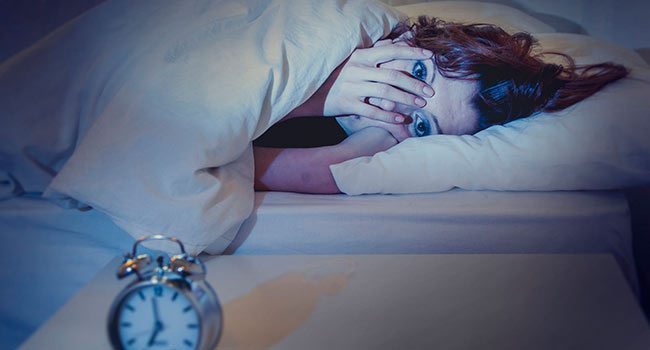Coronasomnia is the name given to insomnia that is sourced from sleep deprivation stemming from the pandemic. Disrupted routines, social isolation, job losses, ongoing uncertainty and questions surrounding the COVID-19 vaccination are causing a surge in this sleep disorder, according to the American Medical Association. A recent sleep study conducted by University of Arizona researchers found more than 50% of 1,000 participants reported experiencing insomnia during the pandemic.
“This is something we’ve been hearing about from guests since the beginning of the pandemic,” said Joey Holt, Amerisleep COO and sleep expert. “From our mattress store in Tucson to our locations in Glendale and Gilbert, many of our guests come to our showrooms talking about how COVID has impacted their sleep, whether it’s worrying about their own health or the health of their loved ones.”
If coronasomnia is ignored, it could lead to profound health issues including elevated risks for high blood pressure, depression, increased stress and overwhelming anxiety. Recent numbers from Express Scripts proves this to be true, noting that when the pandemic started, prescriptions for anti-anxiety medications increased 34.1%, antidepressants increased 18.6% and sleep medications increased by 14.8%.
“People have a dependency on being in control of not only themselves, but the things around them,” said Holt. “The pandemic has stripped away the capabilities of us to be in the driver’s seat and forced many to be observers rather than people who can act.”
As a society that has a lot of trouble with sleep in general, there are things you can do to combat coronasomnia that are easy, affordable and can be done at home.
Tip 1
“Getting bright light early, whether it’s artificial or natural, then transition to less light at night to encourage healthy sleeping patterns,” said Holt. “Habits such as leaving your office desk for lunch or going on a morning walk outdoors are effective ways to improve your sleep.”
Tip 2
Next, it is crucial to keep your bedroom as your bedroom. Try not to turn it into an office, even though you might be working from home. While we all might be guilty of using our phones too much, this habit is something that could damage your potential for a good night’s rest.
Tip 3
“We also suggest to not drink anything with caffeine past 2 p.m.,” Holt said. “The caffeine you consume later in the day could take at least 8 hours to metabolize and, in turn, keep you up at night. So next time you go for your post-lunch refresher, make sure to drink it decaf because caffeine can also decrease REM sleep, which is when you achieve your deepest sleep.”
Tip 4
One of the most surprising tips is to not take naps.
“We all live hectic lives, and this can be a challenge for us not to close our eyes even if for only 20 minutes a day,” Holt said. “However, this can make it more difficult to fall asleep at night and impede your sleep cycle.”
Tip 5
Finally, the anxiety and battles with mental health make it challenging to unwind at the end of the day. If you feel anxious before bedtime, try a few breathing techniques to relax, oxygenate your blood, and calm yourself down. Not being settled before bed makes it difficult to fall asleep and brings on nightmares throughout the night. Being conscious of how you feel and implementing these simple tips should help you get into a new routine that doesn’t include struggling with coronasomnia.
McKenzie Hyde is an Amerisleep Certified Sleep Science Coach and editor of the Early Bird Blog.




